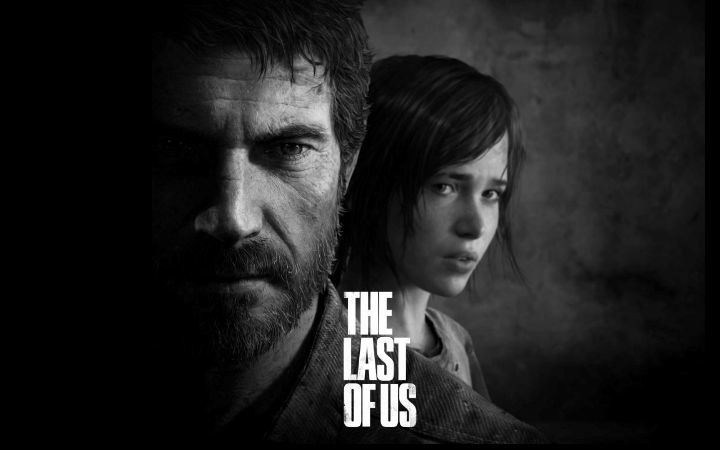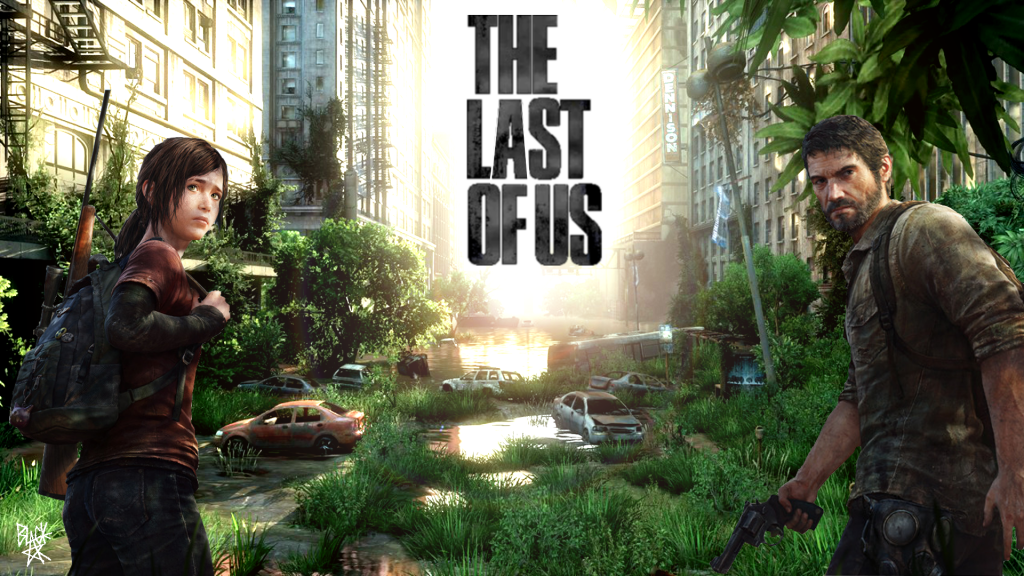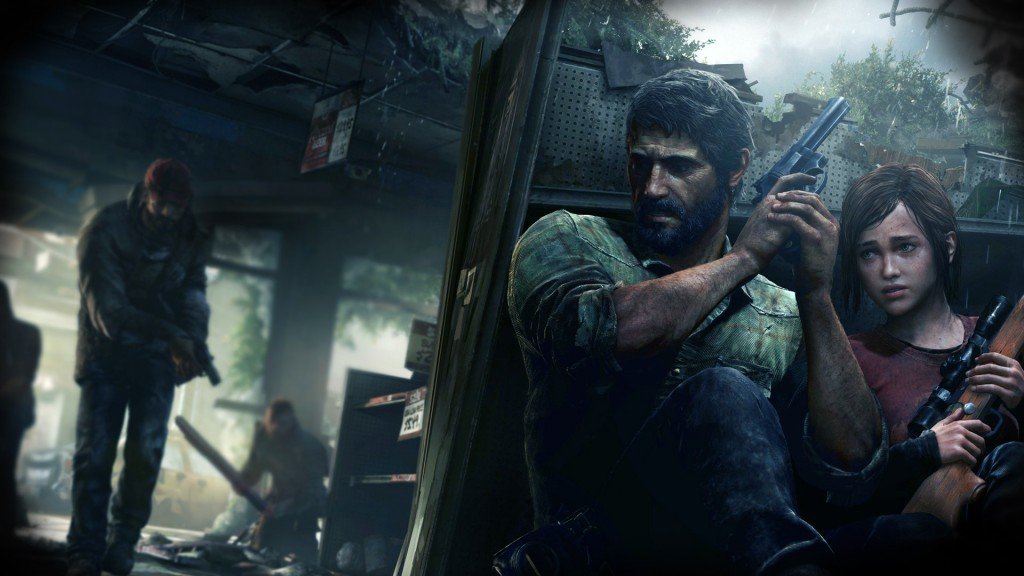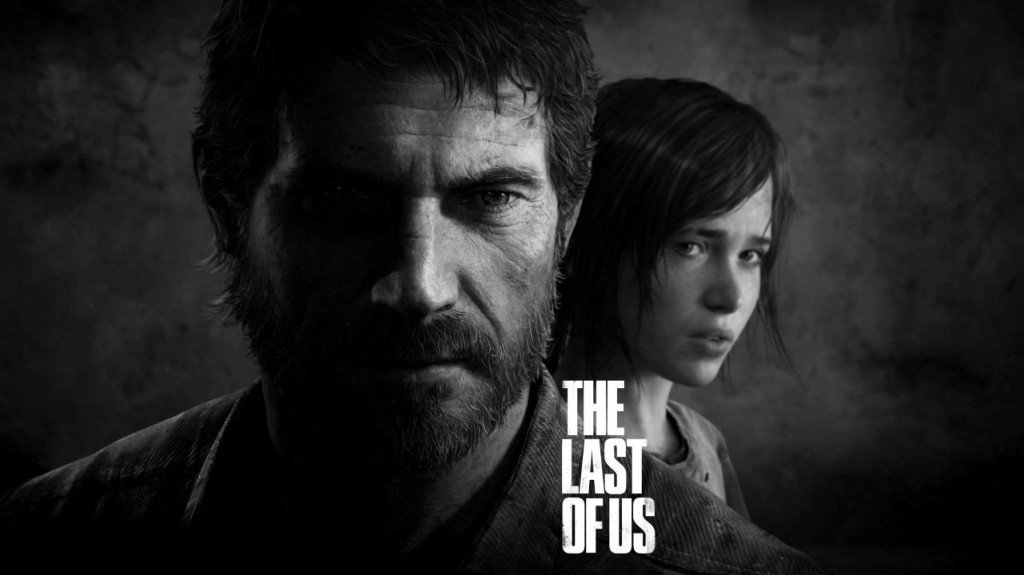Heralded as the swan song exclusive of the generation, The Last of Us achieves what’s been deemed near impossible, and in doing so, drags us –kicking and screaming if need be– into a world and its denizens like few before. Yet, using survival at all costs as a mantra, has Naughty Dog‘s latest sacrificed the integral elements that are necessary for a game to flourish?
[gn_heading style="2"]A future to fear[/gn_heading]The Last of Us gives us a world that personifies the age-old connotation “Survival of the fittest“. Obvious influences are unavoidable and appear in the form of “The Road” and even “The Walking Dead”, but this is a desolate post-apocalypse all its own. After a fungus called Cordyceps (which actually exists by the way) takes hold of the global populace, life quickly crumbles into the ugly side of humanity we all try to ignore. It’s easy to dismiss fictitious events in movies, books, or games, but one thing history has shown us is that society is always just a step away from complete collapse. One need only look to recent catastrophes as real life examples to what lengths mankind will sink to when lives are on the line. With this mindset, a further sense of realism is added to an almost hopeless future.
At the cusp of this madness is where we are introduced to Joel, Sara, and his brother Tommy. The events that transpire set the stage for characters you want to invest in for the duration of the games 15+ hours. As far as openings go, I guarantee your heart will be in your throat.
 Once the inevitable collapse occurs, The Last of Us delves into the realm of survival at all costs and often, kill or be killed. Within this construct, its characters and relationships are realized. Perspective is a necessity for this violent world, and once a 14-year-old child named Ellie grudgingly becomes your charge, the atrocities she’s forced to witness and commit, while difficult to watch, are somewhat understandable considering the circumstances. Make no mistake: even children are not spared the brutal reality in The Last of Us. While the game can be grotesque, there are moments when what isn’t shown is vastly more effective than what is. Instant kills are a shining example, particularly if a Bloater happens to get a hold of you. Imagining what happens as opposed to showing it simply works better.
Once the inevitable collapse occurs, The Last of Us delves into the realm of survival at all costs and often, kill or be killed. Within this construct, its characters and relationships are realized. Perspective is a necessity for this violent world, and once a 14-year-old child named Ellie grudgingly becomes your charge, the atrocities she’s forced to witness and commit, while difficult to watch, are somewhat understandable considering the circumstances. Make no mistake: even children are not spared the brutal reality in The Last of Us. While the game can be grotesque, there are moments when what isn’t shown is vastly more effective than what is. Instant kills are a shining example, particularly if a Bloater happens to get a hold of you. Imagining what happens as opposed to showing it simply works better.
Writing you can sink your teeth into and an air tight story are essential to buying in, but what set the people apart here is the stellar voice acting performances throughout. Hand in hand with the wonderful facial animation, even the subtle moments have lasting impact. We care, we feel, we cheer, we hurt, all in the name of these everyday people asked to do the impossible. Every choice has weight, every kill seemingly carries a consequence, the symbiotic cohesion crashes together, and before you know it, you can’t help but care what happens to these people.
[gn_pullquote align="left"]“Once the inevitable collapse occurs, The Last of Us delves into the realm of survival at all costs and often, kill or be killed. Within this construct its characters and relationships are realized”[/gn_pullquote]It doesn’t stop at the main characters either; many different faces fall in and out of your tale as your progress. All hit with the same amazing realism and reflect perfectly the situations and predicaments they find themselves in. They’re believable and so are their relationships. From the initial stand off between Joel and Ellie, to what the connection evolves into, and all the little moments in between are nigh perfect in their execution. You want to search every broken down corner or car as you traverse the environment simply to hear what they’ll talk about next. Truly, the achievement for character development cannot be overstated. Years from now, I believe we will look back at The Last of Us as an example on just how to create video game characters correctly.Ellie is your ward to protect, but she’s far from helpless. The stigma of escorting another character carries a negative tone, but thankfully, the AI in place puts to rest any doubt that Ellie would be little more than a damsel in distress. It isn’t flawless, though, and while not having to hand-hold your companion is a relief, at times she will wander out of hiding right in front of an enemy, only for them to completely ignore her in favor of their prime target: you. More comical than anything, it is one of the sacrifices The Last of Us made in order for the game to control correctly, and work it does, as the tension is palpable in encounters and mild AI distractions never serve to break immersion for the player.
distress. It isn’t flawless, though, and while not having to hand-hold your companion is a relief, at times she will wander out of hiding right in front of an enemy, only for them to completely ignore her in favor of their prime target: you. More comical than anything, it is one of the sacrifices The Last of Us made in order for the game to control correctly, and work it does, as the tension is palpable in encounters and mild AI distractions never serve to break immersion for the player.
In a despotic world where survival is paramount, combat is obviously integral. Joel isn’t a retired soldier or some cliched chosen one; he’s simply a man, and as such, plays like one. Years of living on the edge have honed Joel’s skills, no doubt, but precise head-shots aren’t going to happen. Aiming is meant to have a learning curve at first, an intentional choice on the developer’s part to further underline the focus on tension. The swaying during aiming may frustrate initially, and being thrown into the fire almost immediately can be discouraging for beginners, but believe me when I say the most difficult encounters are front loaded. Once you grasp the necessary mix of stealth, listening, and combat, you’ll be right at home vanquishing Clickers, Runners, or any other form of baddie trying to do Joel and Ellie harm with your growing arsenal.
Scrounging amongst the squalor may seem demeaning, but it’s a necessity of life in The Last of Us. Discovering discarded blades, parts, or alcohol can mean the difference between having the upper hand in encounters, or trusting a bat and a few bullets as your only defense. Upgrading your weapons with tools and parts at a bench or creating Molotov cocktails and timely first aid kits in the thick of battle, crafting happens in real time. Choose wisely or leave Joel vulnerable to the horrors lurking around the corner. Knowing how and when to craft eventually becomes second nature as your progress.
Firing your gun and smashing enemies with a pipe will only get you so far; to survive this trying ordeal you will need patience and, more importantly, your ears. The Last of Us’ sound design may be its most underrated aspect. Hearing a clicker shift from speaker to speaker never ceases to disturb. Couple this with the deafening quiet of an empty world gone to hell, the feeling of calm one moment to having your heart pounding while an infected creeps on the other side of the door is encapsulated by the masterful sound design.[gn_pullquote align="right"]“Full of big moments, graphical wow, and sublime audio, it’s often the little things that matter most. From observing the dilapidation of the future United States, to having each building hold some half finished story, The Last of Us thrives on your ability to fill in the gaps.”[/gn_pullquote]
My only qualm was in relation to the supposed stealth killing of Runners or Survivors, who despite the namesake of the act, make a ton of noise upon dismissal. Enemies remain unaware no matter how close you are when you dispatch their compatriots, and as long as they don’t have you in their sights during this supposed silent take-down, they’re no more aware than before.
Full of big moments, graphical wow, and sublime audio, it’s often the little things that matter most. From observing the dilapidation of the future United States, to having each building hold some sort of half finished story, The Last of Us thrives on your ability to fill in the gaps between satisfying story chunks and hold-onto-your-seat enemy engagements. This dependence on the subtle can detract from the pacing, and unless you are willing to engage and buy into everything surrounding you, the narrative bogs down. Likewise, while the story length is welcome in an era of too short single player campaigns, The Last of Us doesn’t do quite enough to justify it, ultimately becoming long in the tooth and at times serving up a vibe of “OK, we get it”
The Last of Us introduces online multiplayer into the equation as well, with mixed results. Entitled Factions, it does away with cumbersome aspects that may impede, letting you focus on putting the skills learned in the single player’s combat to good use. Attempting to infuse some of the story-based aspects, you play as either the Fireflies or Survivors and work to expand your group while keeping them fed and stocked with necessary supplies. Fail to do so and your group may become ill and die, or simply up and leave you. You can follow along if you choose, but it can easily be forgotten to concentrate solely on the two battle mode choices.
For players wanting more out of their time experience, multiplayer is a welcome addition, but like God of War: Ascension’s stab at MP earlier this year, it adds little to the overall experience in a seemingly single player focused game. Entertaining and capable but forgettable, don’t expect anything ground breaking online when you inevitably delve into Factions.
[gn_heading style="2"]Uncompromising to a fault[/gn_heading]The Last of Us sets out from the beginning to weave a tale of survival and struggle. It accomplishes this in every way, but Naughty Dog‘s unflinching devotion to this ideal results in something unfamiliar. The emotion is real, as are the characters residing in its universe, but you never feel really good playing it. Perhaps we aren’t supposed to. We relate and sympathize with The Last of Us‘ plight, but do we want to return? Again, I suppose that is the point, and nowhere is this single-minded focus more clear than the finale, which is shockingly human in its flaws and as a testament, almost made me sick. Never wavering from its theme is the highest compliment to be paid here, but after all we went through together, don’t we deserve more? In the end, The Last of Us may leave the player suffering as much as the in-game world has, but just maybe, that’s the point…
[gn_note color="#FFCC00"]This review was based on a retail version of The Last of Us for the PlayStation 3 and developed by Naughty Dog. New Gamer Nation received a review copy of the game.[/gn_note]





